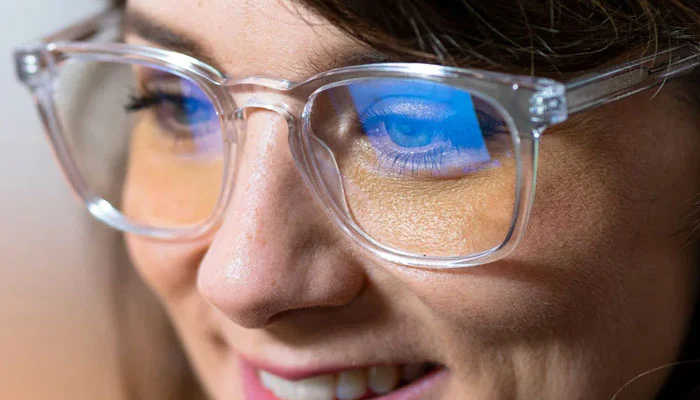Blue-light blocking glasses, widely touted for reducing eye strain and improving sleep, may not offer the benefits they claim, according to a comprehensive analysis of 17 studies.
These Blue-light blocking glasses, designed to shield eyes from potentially damaging blue light emitted by screens, have gained popularity, especially during the pandemic. However, a recent meta-analysis suggests that their effectiveness in reducing digital eye strain and enhancing sleep quality is limited.
The study, led by Laura Downie, an associate professor in optometry and vision sciences at The University of Melbourne, reviewed randomised controlled trials examining the impact of blue-light glasses on eye health, vision, and sleep quality. The results reveal that the evidence supporting the efficacy of these glasses is sparse. While a few short-term studies demonstrated minor relief from eye strain, the overall consensus suggests that the glasses’ impact on eye strain is not significant.
Experts attribute the underwhelming performance of blue-light blocking glasses to two main factors. Firstly, screens emit relatively low levels of blue light, and secondly, the glasses themselves only block a small percentage of this light. The primary source of blue light exposure is sunlight, with screens contributing a minor fraction.
Regarding sleep, the analysis included six studies on the glasses’ effect. Although a handful of studies indicated potential benefits for specific groups, such as pregnant women or individuals with certain mental health conditions, the general applicability of these findings remains uncertain. The connection between blue light and sleep disruption is based on research into natural circadian rhythms, which has been predominantly explored in animal studies.
Experts recommend focusing on factors such as screen content and sleep habits to alleviate these problems. Dr Bhanuprakash Kolla, a sleep medicine specialist at the Mayo Clinic, suggests that the content being viewed on screens and overall sleep habits have a more substantial impact on sleep quality than the presence of blue light.
As for the Blue-light blocking glasses, experts conclude that while they may not cause harm, they are unlikely to provide the claimed benefits either.



Comments are closed.